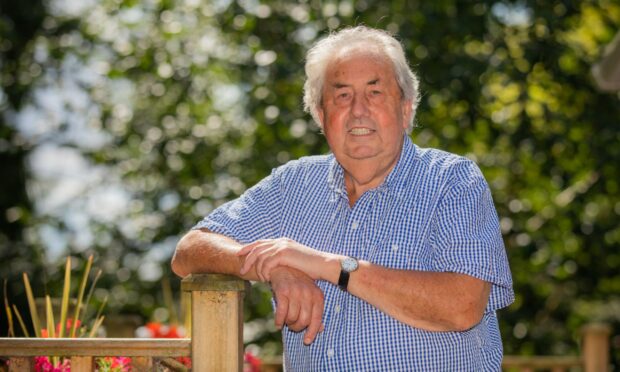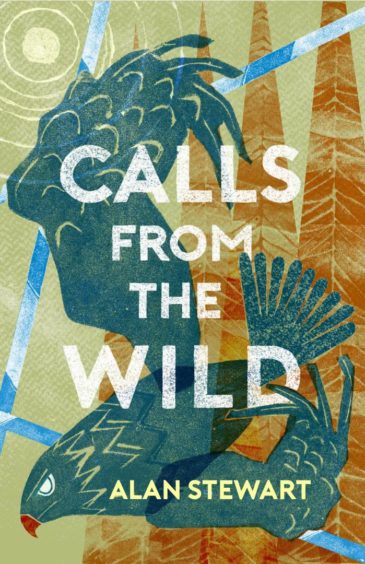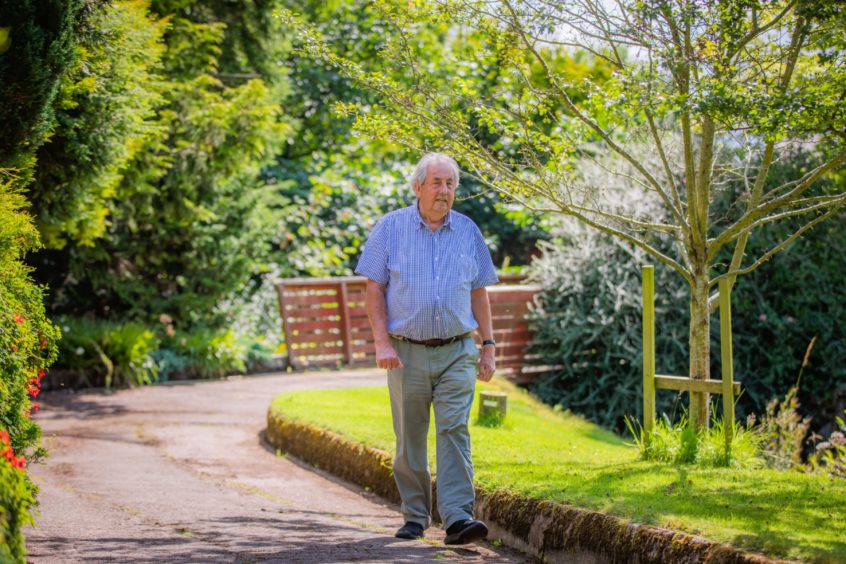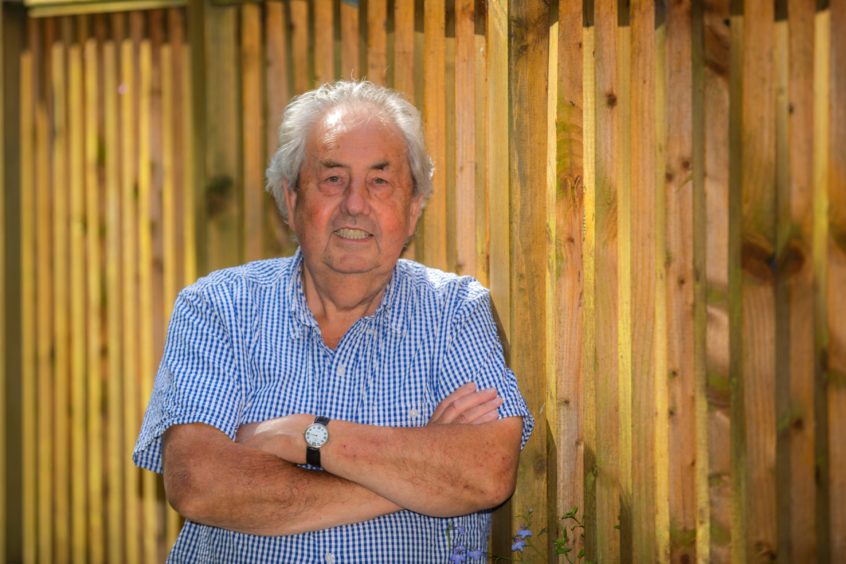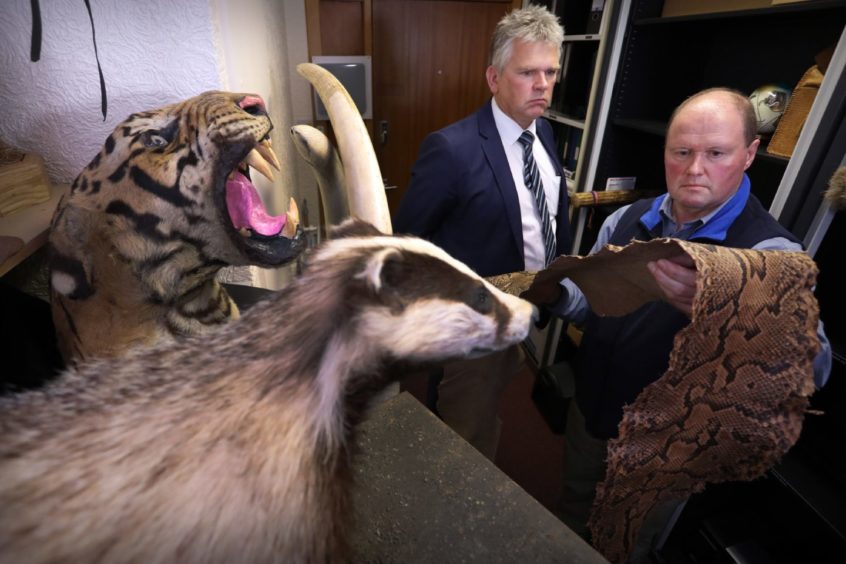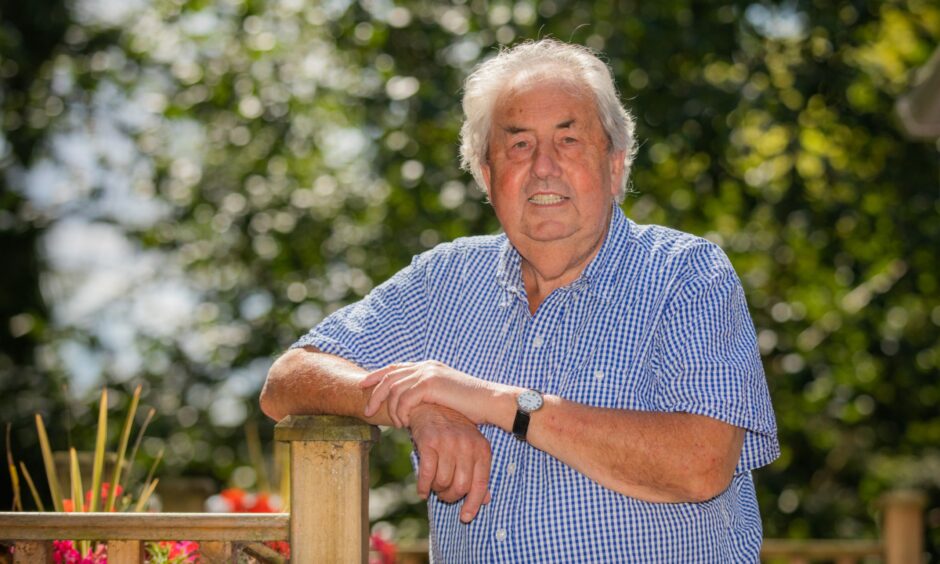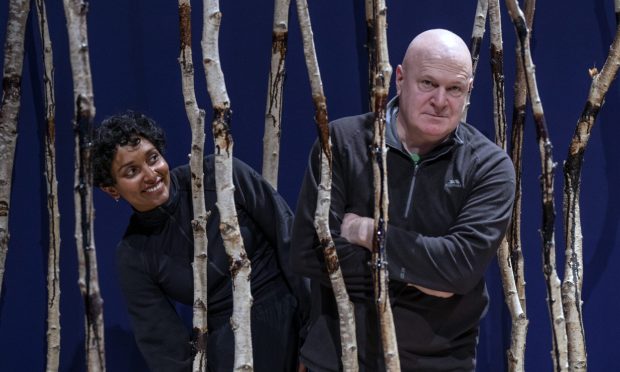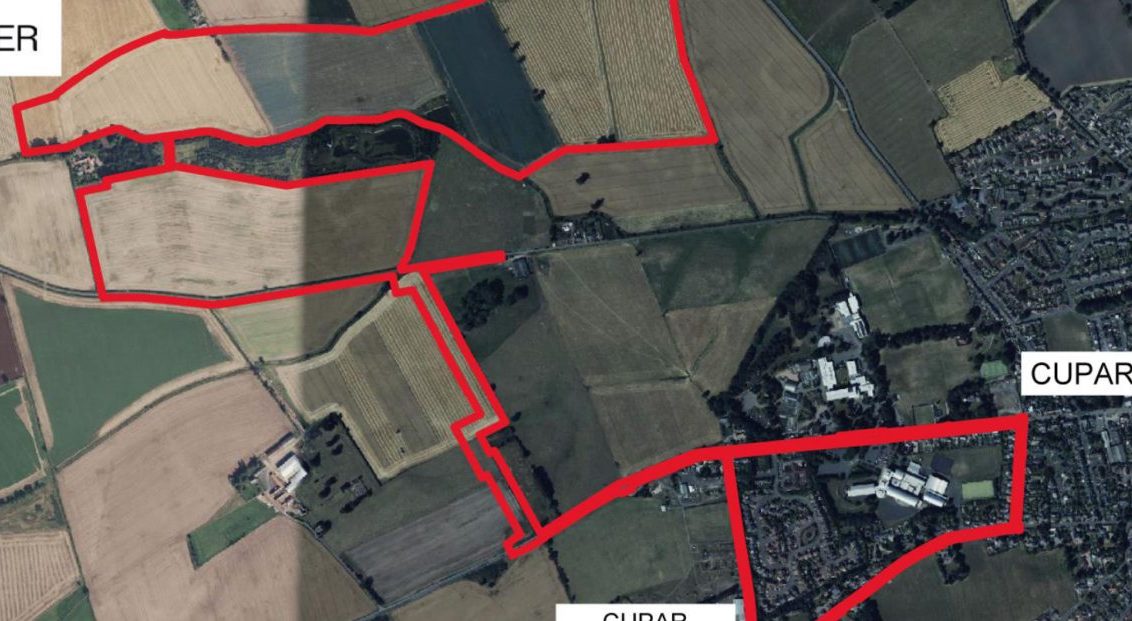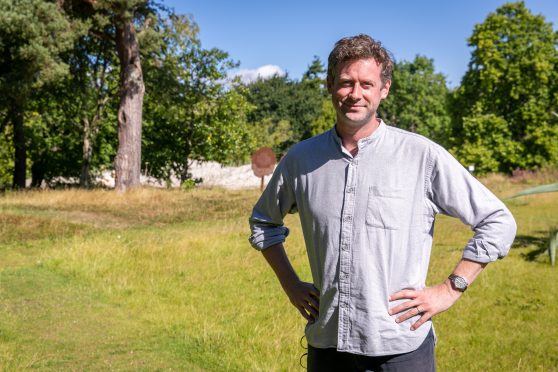Following the arrival of tougher penalties for wildlife crime in Scotland, Michael Alexander speaks to retired Tayside wildlife crime officer Alan Stewart about his new fictional crime book inspired by real experiences.
Once described as ‘Britain’s foremost wildlife detective’, Alan Stewart has 50 years of policing experience and is the author of seven books on wildlife and wildlife crime in the UK and Ireland.
However, in his new book Calls from the Wild, Alan has made his first venture into crime fiction.
The novel illustrates the challenges a wildlife crime officer faces in getting to the bottom of cases, particularly in the closed world of game keeping where whistle blowers are scarce.
But what’s evident in his new book is that while it’s fictional, it draws from the unparalleled real life knowledge of wildlife crime enforcement experienced by Alan during his long Tayside career.
Experience
“I think most of the stuff I’ve written about in the book I’ve either been involved in investigating something similar or some of my colleagues have,” says the 74-year-old who lives in rural Perthshire.
“It’s from personal knowledge and different things. The thread of the story is a chap who’s bought a driven grouse moor. He was formerly a sporting agent and he’s given that up and he wanted his own grouse moor.
“But of course employed keepers are not staying within the rules.
“That’s the main thread through the story but it’s interspersed with hare coursing, a badger caught in a snare, theft of snow drop bulbs, badger digging, blocking in nesting birds, wild bird egg theft, finch trapping and damage to fresh water pearl mussels.”
Police career
Born in Perth, Alan is a former pupil of Craigie School and Perth High School.
He worked on the Dupplin Estate before starting as a police cadet in 1964, spending time as a constable in Dunblane and Perth.
He spent a significant part of his career in CID and with the drugs squad.
He was promoted to inspector in 1993, covering Crieff and Kinross, and retired after 31.5 years police service in 1997.
During his last four years with the force, he was Tayside police’s first dedicated wildlife crime officer and in 2001 he was awarded the MBE for services to policing wildlife crime.
He was re-employed as a civilian full-time wildlife crime co-ordinator – a role he held until 2011 – and also served as intelligence officer with the Livingston-based National Wildlife Crime Unit.
He investigated everything from bird of prey persecutions, to illegal trapping, poisoning, shooting, and poaching of salmon, game and deer.
It was when he starred in the 2007 BBC documentary Wildlife Detectives about the work of wildlife officers in Scotland, however, that he took his first foray into writing wildlife books after it was suggested he should write a book to accompany the series.
Alan went on to write other books including The Thin Green Line – a compilation of his colleagues’ wildlife crime investigations covering the whole of the UK; the Lone Furrow on more recent wildlife crime investigations, and Wildlife and the Law.
While they’ve all tapped his extensive knowledge and love of the environment, his recent publication Walking with Wildlife, written between August 2018 and August 2019, was perhaps the most satisfying as it gave him the chance to revisit haunts of his youth and observe intimately how things have changed.
Alan explains it’s two or three years since he had the idea to venture into fiction.
After finishing Walking with Wildlife, he says he’d “kind of run out of things to write about” and thought “ach I’ll give this fiction a go, and if it doesn’t work out it can go in the bin”.
Getting down to writing business last winter, Alan thought it would be a lot harder to write fiction because he’d never done it before.
However, he actually found it “wasn’t too bad at all” and the reviews so far have been good.
“You certainly had to change the writing style a bit because most of it is speech rather than me narrating it myself,” he says.
“That took a wee bit of getting used to. But I read a lot anyway, so just copying other folks style – it wasn’t too bad.
“My objective I think was to let the readers see how difficult it is to get a conviction in a lot of wildlife cases.”
Fictional tale
Calls from the Wild focuses on a bird of prey poisoning incident on a Scottish Highland estate which has tragic results and pitches PC Bob McKay against organised crime interests on a driven grouse moor.
Loch Garr Estate in Highland Perthshire is revealed to be a recent acquisition of Nigel Roberts, a rich and ruthless sporting agent turned landowner, who appears to be untouchable.
Trying to bring the case to court with all his skills and experience of crime detection, and expert help in forensic investigation, becomes the biggest challenge of this wildlife crime officer’s career.
PC McKay also has his work cut out investigating a deluge of other reported crime against the wildlife that he is desperate to protect.
Farms in his area are plagued by visits from a pair of hare coursers; two men from Cambridgeshire are found with a lorry load of snowdrop bulbs; there’s a case of a snared badger, a gang of ruthless men digging badgers and a drunken rabbit trapper.
As the catalogue of crime on Loch Garr Estate continues, PC McKay travels the length and breadth of Perthshire and beyond, responding to urgent calls from the wild – with only a selection of Scottish country dance music to keep him company.
Through the jigs and reels only one thought keeps him going, getting Roberts and his gamekeeper before a court – but will either of them ever see the inside of a prison cell?
“A lot of folk have said PC Bob McKay is probably based on me which is probably quite true!” laughs Alan.
“That was the easiest way to do it – to imagine that I was still working and transferring my skills to PC Bob McKay.”
Alan explains the book, which will likely spawn a sequel, is set two thirds in Perthshire and a third in Dundee or Angus.
But he also gives an insight into the court processes with one section of the book ending up at the High Court in Edinburgh.
Topical
On the day of this interview, police in Inverness are appealing for information after a protected bird of prey, a goshawk, was found shot in the Loch Farr area of Inverness-shire.
It’s as topical as ever. But it’s not always easy for the police, Alan says.
“Lot’s of folk think the police should get put over the coals for not detecting many wildlife crimes, particularly those that occur in the middle of nowhere out in the countryside,” he adds.
“But the main difficulty is getting witnesses because there’s very seldom witnesses to a lot of wildlife crimes.
“And then because it’s specialist, if an ordinary cop goes to a crime scene and doesn’t ask for assistance from a wildlife crime officer, he might not be going about it the right way.
“He might be struggling – the same as I would have been if I’d gone to some of the traffic type incidents that the traffic department deal with. I wouldn’t have had a clue about that.”
Alan says the main Scottish legislative change mentioned in the book is increased penalties for quite a number of wildlife crimes from six months to five years.
In the past, wildlife crime wasn’t always considered a serious crime, which could hinder police abilities to carry out covert surveillance on private land.
However, since November last year, the Animals and Wildlife (Penalties, Protections and Powers) (Scotland) Act 2020 increases the maximum penalty for the most serious animal welfare and wildlife crimes to five years imprisonment and unlimited fines.
“I think Scotland has always been a lot harsher – we’ve always been a couple of steps ahead of England and Wales,” he adds. “The new legislation put us even further ahead.”
Risk of being caught
Alan says the tougher penalties are to be welcomed. However, what still needs to change is the risk of being caught.
“For a lot of wildlife crimes, the risk of being caught is still very slim,” he says.
“It doesn’t matter how steep the penalty is – if folk think they’re not going to get caught for it they’ll continue doing it.
“I think we need to get the Scottish Government now to get cracking on converting the Werritty Review – bringing in license driven grouse moors as they said they would do.
“I think if a driven grouse moor has the threat of the licence being revoked for two years, three years, five years, or whatever it might be, then I think they might think twice about crime.
“I’m sure they’ll make sure then their employees stay within the law.”
*Calls from the Wild by Alan Stewart is published by Thirsty Books, £10, ISBN 978-1-9161112-9-5
